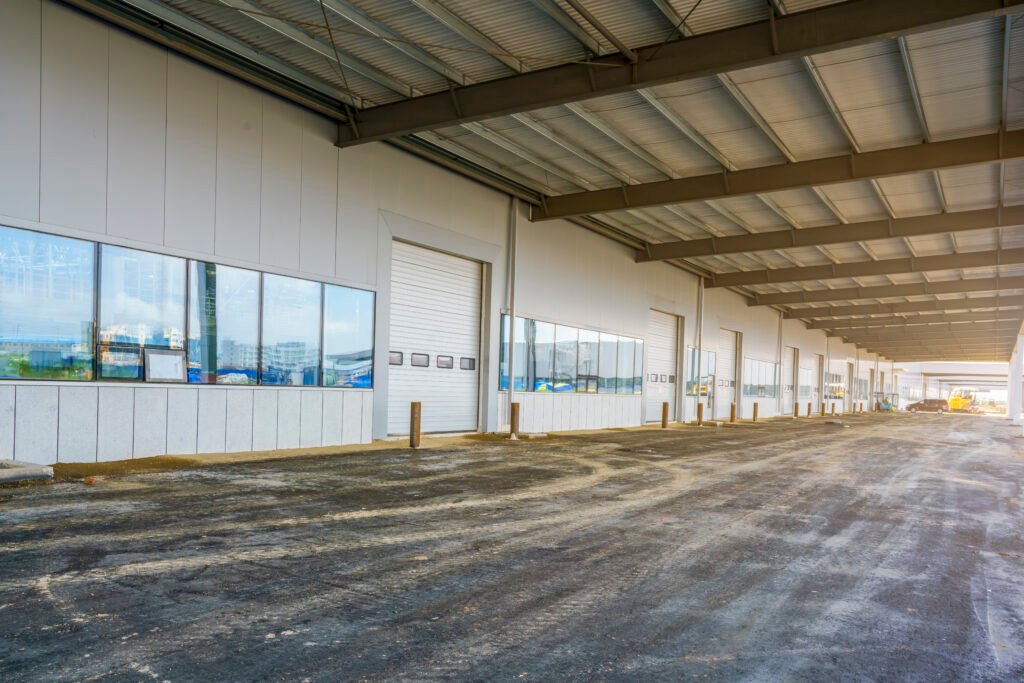
Discover the key differences between prefabricated warehouses and traditional construction, including cost, and future trends.
Introduction
The rapid growth of e-commerce, manufacturing, and logistics has increased the demand for efficient warehouse spaces. When planning a new warehouse, one of the biggest decisions is choosing between prefabricated warehouses and traditional construction. Both options offer unique advantages, but which one is right for your business? In this guide, we compare the two approaches, highlighting key factors such as cost, construction time, flexibility, and sustainability.
What is a Prefabricated Warehouse?
A prefabricated warehouse is built using pre-manufactured components that are assembled on-site. These warehouses are known for their quick construction time, cost-effectiveness, and sustainability.
What is Traditional Warehouse Construction?
Traditional warehouse construction involves on-site building with raw materials such as concrete, bricks, and steel. This method provides greater customization but often requires more time and a higher budget.
Key Differences Between Prefabricated and Traditional Warehouses
1. Construction Speed
- Prefabricated Warehouses: Components are manufactured in a controlled environment and assembled on-site, significantly reducing construction time.
- Traditional Warehouses: Requires on-site construction from scratch, which can take months or even years to complete.
2. Cost Efficiency
- Prefabricated Warehouses: Generally more affordable due to reduced labor and material waste.
- Traditional Warehouses: Higher costs due to longer construction periods and labor-intensive work.
3. Durability and Strength
- Prefabricated Warehouses: Made with high-quality steel and modular materials, offering durability but with some design limitations.
- Traditional Warehouses: Built with reinforced concrete and bricks, providing long-term stability and strength.
4. Customization and Flexibility
- Prefabricated Warehouses: Limited customization, but offers modular expansion options.
- Traditional Warehouses: Fully customizable based on business requirements.
5. Sustainability & Environmental Impact
- Prefabricated Warehouses: Reduced material waste and energy-efficient construction methods.
- Traditional Warehouses: Higher environmental impact due to material usage and extended construction times.
6. Integration of Modern Technology
Both types of warehouses can integrate modern technology for enhanced efficiency:
- The importance of ventilation in warehouse construction ensures proper airflow and temperature control.
- The role of IoT in warehouse automation and logistics helps streamline operations.
- How AI and robotics are transforming warehouse management enhances inventory tracking and efficiency.
- How RFID technology improves warehouse inventory tracking minimizes errors and optimizes stock management.
- Smart warehouses: The future of supply chain management incorporates automation for improved efficiency.
Which One Should You Choose?
The choice between prefabricated and traditional warehouse construction depends on your business needs:
- Choose Prefabricated Warehouses if: You need a quick, cost-effective, and scalable solution.
- Choose Traditional Construction if: You require a fully customized and long-term structure with higher durability.
Future Trends in Warehouse Design and Infrastructure
With advancements in technology, warehouse construction is evolving:
- Cloud-based warehouse management solutions for e-commerce are streamlining operations.
- The impact of blockchain technology on warehouse security is enhancing data protection.
- How predictive analytics help in warehouse demand planning is improving inventory forecasting.
- Advantages of using drones in warehouse operations are boosting efficiency and security.
- Visit The Digital Farma . for web & Digital services.
Conclusion
Both prefabricated and traditional warehouses have their pros and cons. If speed, cost, and sustainability are your priorities, prefabricated warehouses may be the best choice. However, if customization and long-term durability matter more, traditional construction is worth considering.
If you’re planning a warehouse project and need expert guidance, Masmk Associates Warehouse Service can help you choose the best option for your business. Contact us today to explore innovative warehouse solutions.
Visit Masmk Associates for expert warehouse construction and management solutions.
